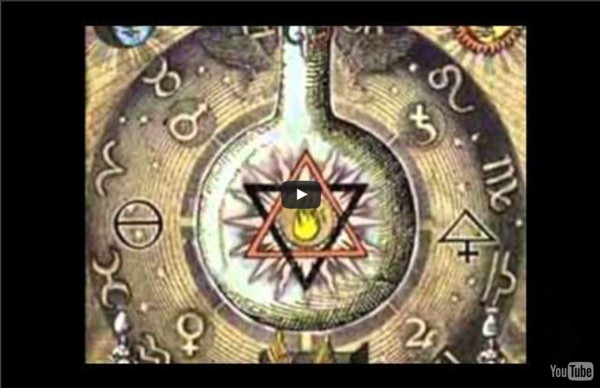



Jakob Böhme Jakob Böhme (/ˈbeɪmə, ˈboʊ-/;[1] 1575 – November 17, 1624) was a German Christian mystic and theologian. He is considered an original thinker within the Lutheran tradition, and his first book, commonly known as Aurora, caused a great scandal. In contemporary English, his name may be spelled Jacob Boehme; in seventeenth-century England it was also spelled Behmen, approximating the contemporary English pronunciation of the German Böhme. Biography[edit] Jakob Böhme (anonymous portrait) Böhme was born in March 8, 1575, at Alt Seidenberg (now Stary Zawidów, Poland), a village near Görlitz in Upper Lusatia, a territory of the Holy Roman Empire. In 1610 Böhme experienced another inner vision in which he further understood the unity of the cosmos and that he had received a special vocation from God. The shop in Görlitz, which was sold in 1613, had allowed Böhme to buy a house in 1610 and to finish paying for it in 1618. Aurora and writings[edit] Theology[edit] 1. 1. Cosmology[edit] Marian views[edit]
Conversations with God Foundation - Home OTO Manifesto Sacred texts Thelema Issued by Order: Peace, Tolerance, Truth; Salutation on All Points of the Triangle; Respect To the Order. To All Whom It May Concern: Greeting and Health. Do what thou wilt shall be the whole of the Law. 1. The Gnostic Catholic Church. It does not include the A.·.A.·., with which august body it is, however, in close alliance. It does not in any way infringe the just privileges of duly authorized Masonic Bodies. 2. It embodies the whole of the secret knowledge of all Oriental Orders; and its chiefs are initiates of the highest rank, and recognized as such by all capable of such recognition in every country in the world. In more remote times, the constituent originating assemblies of the O.T.O. included such men as: And recently: The names of women members are never divulged. It is not lawful here to disclose the name of any living chief. 3. 4. In its bosom repose the Great Mysteries; its brain has resolved all the problems of philosophy and of life. 5. 6. 7. 8. 9. 10. 11. L.
The Mists of Avalon 2001 - Completo - Legendado Chapter 10 « the LIVING BOOK of LIFE A few words from an old Wiseman inspired from some cosmic space, from which this all seemingly takes place. We seem to find ourselves falling down into Poverty in this our modern state of grace. On the other hand, is this just a state of mind, taught to our children throughout all time? Yet in the end we cannot be broken, it is simply up to Society. Do you see? As nature has a way of breaking. Turn to me with open arms. “The lonely calling of a Shamans life” Upon this Earth, there dwells a man, That heals the soul as no one can. His method work, and many find, new strength of heart and peace of mind. He feels great joy, though tastes no kiss, no children to dance around his feet, no tender maid his flesh to meet, Just to heal everything, within his sight, in fair exchange for smiles they give each night. The folks who wander here and there, feeling lost in great despair; he himself does reach inside, removing splinters and calming our tides, Tony Gray’Owl an American Cherokee Shaman What! You!
Lilith Lilith (Hebrew: לילית; lilit, or lilith) is a Hebrew name for a figure in Jewish mythology, developed earliest in the Babylonian Talmud, who is generally thought to be in part derived from a class of female demons Līlīṯu in Mesopotamian texts of Assyria and Babylonia. Evidence in later Jewish materials is plentiful, but little information has been found relating to the original Akkadian and Babylonian view of these demons. The relevance of two sources previously used to connect the Jewish Lilith to an Akkadian Lilitu—the Gilgamesh appendix and the Arslan Tash amulets—are now both disputed by recent scholarship.[1] The two problematic sources are discussed below.[2] The Hebrew term Lilith or "Lilit" (translated as "Night creatures", "night monster", "night hag", or "screech owl") first occurs in Isaiah 34:14, either singular or plural according to variations in the earliest manuscripts, though in a list of animals. Etymology[edit] In Akkadian the terms lili and līlītu mean spirits. [edit]
İnsanın Akıl Almaz Gücü: Durugörü | Evren ve İnsan Beş duyusunu kullanmadan ya da bu duyuları aşarak, olanı biteni biliveren birçok insan bulunduğunu biliyoruz. Bunların bir bölümü geçmişteki, bir bölümü o andaki olayları, bir bölümü de gelecekte olacakları biliyorlar. Bunlara inanmayanlar olabilir; ama ortada tanıklar var, onlar gördüklerini unutmuyorlar… Denemeler yapılıyor. Konu bilimsel yönden araştırılıyor; didik didik ediliyor… İşte olaylardan bazıları… Dünyanın Her Yanını Görüyor ABD’de California’daki Stanford Araştırma Enstitüsü’nün doktorlarından Russell Targ ve Harold Puthoff’un çalışma odalarındaki telefon çaldı. Telefondaki bilim adamı, Targ ve Puthoff’un deneylerinde kendisinden yararlandıkları Ingo Swann adlı bir medyumun, coğrafi enlem ve boylamı verilen yerleri tanımlayabileceğinden söz ettiklerini işitmişti… Deney için bir araya geldiler. O yerde, kayalık bir ada gördüğünü söyledi. Medyumun anlattıkları bütünüyle doğruydu. Kerguelen Adaları Bunun gibi başka deneyler de gerçekleştirilmişti. Telepati Deneyi Hoover Kulesi Dr.